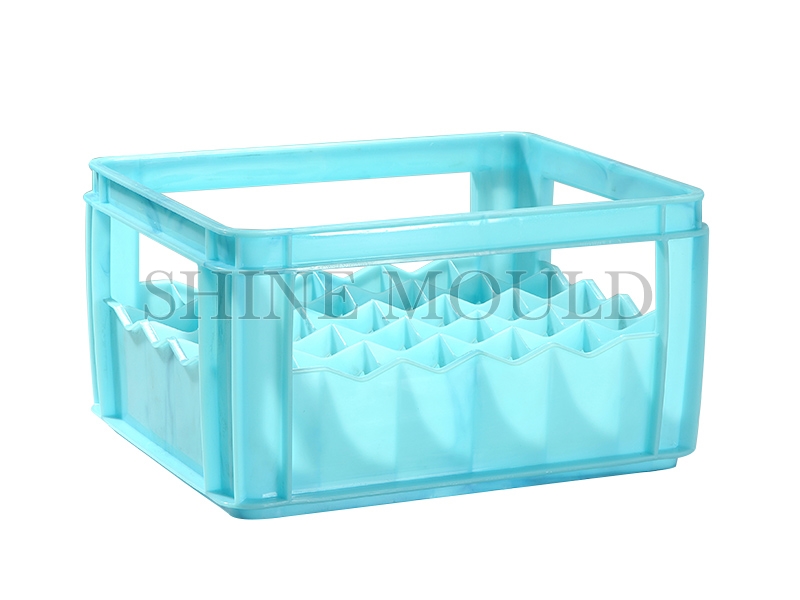Plastic Crate Mould: The Secret Behind Tough and Reliable Plastic Crates
China Plastic Crate Mould Manufacturing
Plastic crate mould is important in the manufacturing of plastic crates, as it directly influences the properties of the final products.
When it comes to the chemical resistance of plastic crates, plastic crate mould plays a crucial role. In many industries, plastic crates are exposed to various chemicals. For example, in the agricultural sector, plastic crates are used to transport fruits and vegetables. These crates may come into contact with fertilizers, pesticides, and other agricultural chemicals. The plastic crate mould should be designed in such a way that the plastic crates produced can resist these common chemicals. If the plastic crate mould does not ensure proper chemical resistance, the crates may deteriorate quickly when exposed to these substances, causing a shorter lifespan and potential contamination of the contents.
The weather resistance of plastic crates is also a key factor, and this is highly dependent on the plastic crate mould. Consider plastic crates used in outdoor storage or transportation. For instance, in construction sites, plastic crates are often used to store and transport building materials. These crates are exposed to sunlight, rain, wind, and temperature variations. A well-designed plastic crate mould will produce crates with good weather resistance. The plastic crates can withstand the ultraviolet rays of the sun without fading or becoming brittle. They can also endure rain and moisture without developing mold or deteriorating due to water absorption.
The impact resistance of plastic crates is another essential property that is determined by the plastic crate mould. In logistics and warehousing, plastic crates are frequently moved around, stacked, and sometimes dropped accidentally. For example, in a busy warehouse where forklifts are used to transport stacks of plastic crates, there is a high risk of the crates being knocked over or dropped. The plastic crate mould must be crafted to produce crates with sufficient impact resistance. If the plastic crate mould does not account for this, the resulting crates may break or crack easily upon impact, which can cause damage to the goods inside and increase costs due to the need for frequent replacement of the crates.
Moreover, different applications may require different levels of these properties. For example, in the food industry, plastic crates used for transporting perishable goods need to have high chemical resistance to ensure food safety, good weather resistance for outdoor storage and delivery, and good impact resistance to withstand rough handling during transportation. The plastic crate mould for these food-related crates must be carefully engineered to meet all these requirements.
In conclusion, plastic crate mould is a fundamental element in the production of plastic crates. It is essential to ensure that the plastic crates have the necessary chemical resistance, weather resistance, and impact resistance. Manufacturers need to pay close attention to the design and quality of the plastic crate mould to produce plastic crates that can adapt to different usage environments and requirements. Plastic crate mould is not just a tool for shaping plastic crates but a key determinant of the quality and functionality of the final products.




 Search...
Search... English
English





-1.jpg)
